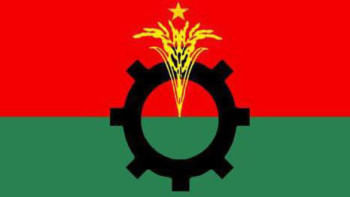Hiding head like the ostriches doesn’t stop dust storm

The expatriates' welfare ministry arranged a press conference today to highlight the successes it achieved in 2016. It tried to do so, but appeared to fail.
Minister Nurul Islam described his ministry was able to send 7.58 lakh Bangladeshi workers abroad in 2016, which is 36.31 percent more than that of 2015. He gave other statistics and plans, indicating a rosy picture of the sector.
However, he abruptly ended the press conference when questions from the journalists were focused on a particular topic -- high migration cost being charged from those going to Saudi Arabia.
He said the ministry has not received complaints of such nature, and sought written complaints so that the ministry could take actions.
Such attitude of the minister is nothing other than that of the ostriches hiding their heads in the sand when there is a dust storm. This is because the fact that Bangladeshi workers spend one of the highest amounts to migrate overseas for jobs has already been documented in several studies.
When the government-fixed migration cost to Saudi Arabia is 1.65 lakh, against ILO Convention that says the migrants should pay no fees, workers are actually spending Tk 5 lakh to Tk 6 lakh.
Such high cost of migration is not only charged in the case of Saudi Arabia, but of all the other countries hiring workers from Bangladesh – call it Malaysia, Oman, Qatar, UAE, Singapore or Bahrain. The exception is South Korea that follows Employment Permit Scheme, a state arrangement.
The danger of such high cost of migration is that migrants have to borrow or sell properties to arrange the money to migrate and that it takes two to three years to recover it. Migrants often have to work longer hours under pressure, which leads to forced labour.
Also, as the employers, agents and middlemen benefit out of the workers' money, they sometimes tend to recruit more workers than that is actually required. This leads to unemployment, underemployment, which means exploitation and low wages. While generally we know that overseas jobs bring prosperity, there is certainly a portion of the migrants whose socio-economic situation deteriorates. Many even die overseas at young ages.
Even if we just look at economic cost-benefit calculation, we can find a different picture in the current situation.
Though nearly 36.31 percent more Bangladeshis went abroad with jobs last year, remittance has fallen to US$ 13.61 billion compared to US$ 14.004 billion in 2015. This means income per migrant has drastically fallen.
The ministry tried to describe the fall in remittance as a result of using informal channels by the migrants. While this may be partly right, the fact remains that the actual income of the migrants has gone down as their wages came down while living cost rose with the Gulf countries cutting subsidies on utilities to offset their revenue losses from exporting oil.
Even in Malaysia, actual earning of the Bangladeshis is going down with the Ringgit price falling equivalent to Tk 16-17, which was Tk 25 only one or two years before, and the rise in living cost there.
Expatriates' Welfare Minister has not mentioned any of such issues in his statement in the press conference. He mentioned 7.58 lakh Bangladeshis went abroad, but not the number of those who returned home because the government does not have any record of it, or how many returned empty-handed.
Nurul Islam might try to hide this like that of the ostrich, but it will not work. If there is a challenge, the minister has to face it and solve it to make sure the citizens of Bangladesh working abroad can work with dignity and are not treated as "people of poor country" as they are often looked at abroad.


 For all latest news, follow The Daily Star's Google News channel.
For all latest news, follow The Daily Star's Google News channel. 



Comments